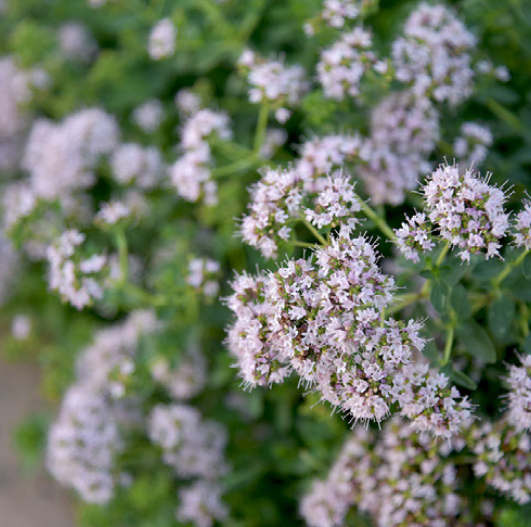 History
History
Marjoram (Organum Marjorana) is a perennial herb belonging to the mint family. With rounded, pale green leaves, Marjoram is often mistaken for oregano; however, it has a sweeter taste and a more delicate nature, preferring moister soil and warmer climates. Originating in Asia Minor and the Mediterranean region, the herb was acclaimed in Egyptian, Roman, and Greek culture. The Greeks called marjoram “joy of the mountain,” crowning newly married couples with it as a celebration of love and good fortune. Aphrodite, the goddess of love, was said to grow and treasure marjoram, making it a popular herb for love spells. When placed under the pillow of a young woman, it was believed to reveal her future husband in her dreams.
Medicinal Uses
Marjoram is also renowned for its medicinal properties. Extremely beneficial to the stomach, it aids in digestion, calms cramps, alleviates nausea, and relieves upset bowels. Its antiseptic, antiviral, and antibacterial properties help the body fight sickness, including food poisoning, malaria, staph, and the flu. Marjoram even improves circulatory function, helping lower blood pressure and cholesterol, while its anti-inflammatory properties soothe head, body, tooth, and muscle aches.
Aromatherapy
Marjoram’s aromatic properties make it the ultimate stress reliever. Testing has shown that marjoram’s tranquil aroma relaxes brain waves. It soothes the senses, alleviates anxiety, reduces stress, and even helps with insomnia, Marjoram’s warm, woodsy fragrance and natural calming abilities are celebrated in HollyBeth Organics’ new Flourish® calming perfume. This double-duty perfume delights the senses and the mind.
